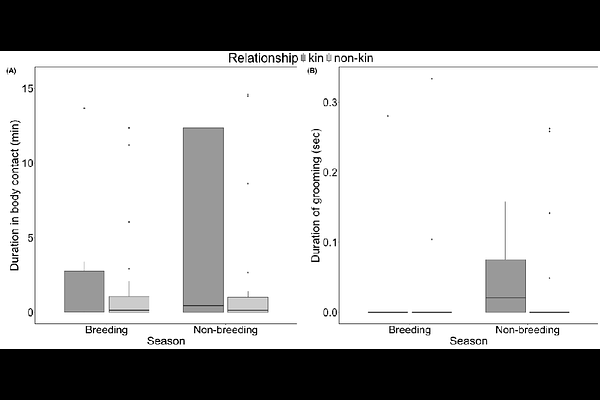Tolerant mothers: aggression does not explain solitary living in the bush Karoo rat

Tolerant mothers: aggression does not explain solitary living in the bush Karoo rat
Makuya, L.; Pillay, N.; Sangweni, S. P.; Schradin, C.
AbstractMany mammal species are thought to adopt solitary living due to mothers becoming intolerant of their adult offspring as well as social intolerance between adults. However, field studies on how solitary mammals interact are rare. Here we show that solitary living can occur without social intolerance. Over three years, we recorded interactions between free living bush Karoo rats (Otomys unisulcatus) and conducted dyadic encounter experiments between kin and non-kin female neighbours, both in a neutral test arena and in field intruder experiments. Social interactions were rare (N=230 in N=2062 observations), and, when observed, were aggressive in only 34% of the cases. In dyadic encounters, mothers interacted amicably with young offspring. Aggression between mothers and offspring was almost absent. This mother-offspring relationship remained amicable even after the offspring had dispersed. Aggression between neighbouring adult females was low in neutral arena tests, independent of kinship and season. However, in the field, females reacted more aggressively towards non-kin than kin intruders, especially during the breeding season. Tolerance between mothers and adult offspring indicates that aggression is not the mechanism leading to natal dispersal and solitary living. We found a solitary social system characterised by social tolerance, suggesting that dispersal in combination with a lack of social attraction rather than aggression can lead to solitary living.